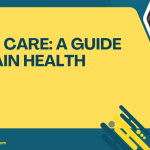Table of Contents:
- Introduction
- 1. Altered Brain Structure
- 2. Impaired Cognitive Function
- 3. Emotional Regulation Challenges
- 4. Increased Risk of Mental Health Issues
- 5. Long-term Behavioral Changes
- Conclusion
- FAQs
Introduction
Stress is often seen as an adult issue, but children can experience significant stress that impacts their brain development. From academic pressures to family dynamics, the sources of stress for children are vast and varied. Understanding how stress affects their brains can help parents, educators, and caregivers support healthy emotional and cognitive growth. In this article, we’ll explore the top five ways stress alters children’s brain development.
1. Altered Brain Structure
Stress can lead to physical changes in the brain’s structure, particularly in areas such as the hippocampus and prefrontal cortex. Studies have shown that chronic stress can reduce the volume of the hippocampus, which is crucial for memory and learning. Additionally, the prefrontal cortex, responsible for decision-making and impulse control, may also be affected.
“Chronic stress can essentially shrink the brain’s capacity for learning and memory—a troubling reality for many children today.”
Visual Representation
| Brain Area | Function | Impact of Stress |
|---|---|---|
| Hippocampus | Memory & Learning | Reduced volume, impaired memory |
| Prefrontal Cortex | Decision-making & Impulse Control | Decreased function, poor judgment |
For more information on how stress impacts brain structure, check out the National Institute of Mental Health.
2. Impaired Cognitive Function
Stress can hinder cognitive functions, such as attention, memory, and executive functioning. When children are stressed, their brains may enter a “fight or flight” mode, diverting resources away from cognitive processes. This can lead to difficulties in concentration, problem-solving, and academic performance.
“Imagine trying to solve a puzzle while a loud alarm is going off—this is how stress affects a child’s ability to learn.”
FAQ: How can I tell if my child is experiencing cognitive impairment due to stress?
Signs may include difficulty focusing on tasks, frequent forgetfulness, and challenges in following instructions. If you notice these signs, consider discussing your concerns with a pediatrician or child psychologist.
3. Emotional Regulation Challenges
One of the most significant impacts of stress on children is the struggle with emotional regulation. Stress can cause dysregulation of hormones such as cortisol, leading to heightened emotional responses. Children may become easily overwhelmed, exhibit mood swings, or even develop anxiety and depression.
“Stress can turn a child’s emotional world upside down, making it challenging for them to cope.”
Helpful Strategies
- Mindfulness Activities: Techniques like deep breathing and meditation can help children manage stress. For additional tips, see our article on top 5 ways to integrate neuro care into your wellness routine.
- Routine and Structure: Establishing a consistent daily routine can provide a sense of security.
For more strategies on managing stress in children, visit the American Psychological Association.
4. Increased Risk of Mental Health Issues
Research indicates that children who experience chronic stress are at a higher risk for developing mental health disorders later in life. Conditions like anxiety, depression, and behavioral disorders are more common among children exposed to high levels of stress. Early intervention can be crucial in mitigating these risks.
“Addressing stress early on can pave the way for healthier mental health outcomes in the future.”
Visual Representation
| Type of Stress | Associated Risks |
|---|---|
| Chronic Stress | Anxiety, Depression, Behavioral Issues |
| Acute Stress | Short-term anxiety, irritability |
FAQ: What should I do if I believe my child is at risk for mental health issues?
Consulting with a mental health professional is an essential step. They can provide assessments and recommend appropriate interventions. For insights on the intersection of mental health and neurological care, refer to our article on top 5 neurological disorders impacting mental health.
5. Long-term Behavioral Changes
The effects of stress can extend beyond childhood, leading to long-term behavioral changes. Children who have experienced significant stress may struggle with relationships, have difficulty handling conflict, or engage in risky behaviors as teenagers or adults. Understanding these patterns can help caregivers provide better support.
“The seeds of stress sown in childhood can blossom into challenges that last a lifetime.”
FAQ: How can I support my child through these changes?
Open communication is key. Encourage your child to express their feelings and validate their experiences. Seeking therapy or counseling can also provide valuable tools for coping with stress and behavioral changes. Also, check out our piece on top 5 ways family support enhances neuro recovery for further insights.
Conclusion
Stress plays a significant role in shaping children’s brain development, impacting their cognitive function, emotional well-being, and overall behavior. By understanding these effects and taking proactive steps to support children, we can help them navigate the challenges of growing up in a stressful world. If you’re concerned about your child’s stress levels, don’t hesitate to reach out to professionals who can provide guidance and support.
FAQs
Q: What are common sources of stress for children?
A: Common sources include academic pressure, family issues, social dynamics, and exposure to trauma.
Q: How can parents help reduce stress in their children?
A: Encourage open communication, establish routines, and provide a nurturing environment. Engaging in fun activities together can also help alleviate stress.
Q: Is some stress normal for children?
A: Yes, some stress is a normal part of life and can even be beneficial by promoting resilience. However, chronic stress should be addressed to prevent negative outcomes.
For further reading on children’s mental health and stress management, consider visiting the Child Mind Institute.
By staying informed and proactive, we can create a supportive environment that fosters healthy brain development in our children.






